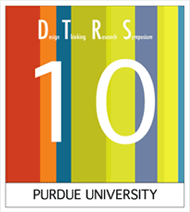Description
Many design projects, including human-centered design (HCD) projects, incorporate multiple teams cooperating within what is referred to as a Multiteam System (MTS) environment. These teams mutually rely on resources and processes provided by other teams. As an MTS increases in complexity, knowledge is distributed to more individuals. While effectively distributed knowledge increases creativity and productivity, it is also can hinder team effectiveness. Team members may fail to exchange relevant information or to integrate pertinent information into reasoning for design decisions. Our research addresses information sharing among teams and individuals in HCD by examining interactions between and within the MTS (i.e., instructional team, novice designer or student team, and stakeholder team) in an interdisciplinary design course. Specifically, we used a thematic analysis of design reviews to investigate the influence of information requests toward the quality of the information exchanged, the influence of meeting structure and flow on design team interactions and meeting outcomes, and the influence of information sharing on cooperation within the HCD process. The findings align with previous studies about information sharing in a MTS and also contribute to a broad understanding of how an integrated interpretation of information sharing can influence a cooperative design process, such as HCD. Our analysis also suggests that designers must promote a cooperative decision-making process by eliciting open and unique information relevant to the design goals. Finally, design educators can support the development of novice engineers by improving their understanding of how to elicit information from, and share information, with other teams and stakeholders.
Keywords
Multiteam System (MTS), Human-Centered Design, Information Sharing, Cooperation, Interdisciplinary Design, Cooperative Design, Information Openness, Information Uniqueness
DOI
10.5703/1288284315946
Included in
Engineering Education Commons, Interpersonal and Small Group Communication Commons, Organization Development Commons
Viewing an Interdisciplinary Human-Centered Design Course as a Multiteam System: Perspectives on Cooperation and Information Sharing
Many design projects, including human-centered design (HCD) projects, incorporate multiple teams cooperating within what is referred to as a Multiteam System (MTS) environment. These teams mutually rely on resources and processes provided by other teams. As an MTS increases in complexity, knowledge is distributed to more individuals. While effectively distributed knowledge increases creativity and productivity, it is also can hinder team effectiveness. Team members may fail to exchange relevant information or to integrate pertinent information into reasoning for design decisions. Our research addresses information sharing among teams and individuals in HCD by examining interactions between and within the MTS (i.e., instructional team, novice designer or student team, and stakeholder team) in an interdisciplinary design course. Specifically, we used a thematic analysis of design reviews to investigate the influence of information requests toward the quality of the information exchanged, the influence of meeting structure and flow on design team interactions and meeting outcomes, and the influence of information sharing on cooperation within the HCD process. The findings align with previous studies about information sharing in a MTS and also contribute to a broad understanding of how an integrated interpretation of information sharing can influence a cooperative design process, such as HCD. Our analysis also suggests that designers must promote a cooperative decision-making process by eliciting open and unique information relevant to the design goals. Finally, design educators can support the development of novice engineers by improving their understanding of how to elicit information from, and share information, with other teams and stakeholders.


Comments
Conference presentations were developed into a book chapter that was published in “Analyzing Design Review Conversations,” edited by Robin S. Adams and Junaid A. Siddiqui (2016, Purdue University Press), which can be found here:http://www.thepress.purdue.edu/titles/analyzing-design-review-conversations.